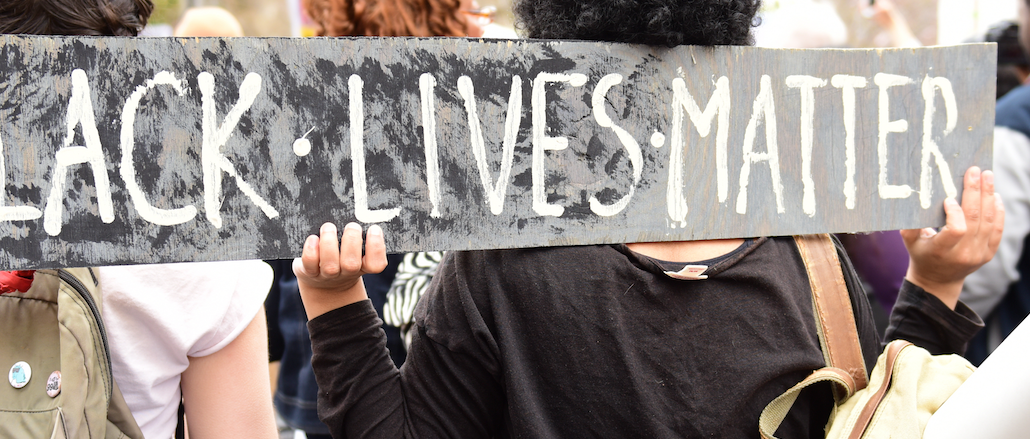Save 50% on a 3-month Digiday+ membership. Ends Dec 5.
‘Wrong side of history’: Brands remain (mostly) silent on #BlackLivesMatter

Brands and agencies are gradually starting to get involved with the #BlackLivesMatter movement, but still much more slowly and less universally than they have historically embraced other progressive causes, most recently LGBT rights.
According to Brandwatch, both the hashtag and the written-out phrase has 2.6 million mentions in the last two weeks — and almost no brands are using it. Of the top 100, verified organizational Twitter accounts, only news outlets are tweeting the phrase.
“This is the civil rights movement of our day,” said Alysha Light, founder of Flight PR in Los Angeles. “These companies all have employees that are indirectly or directly affected by what is going on.”
And yet, brands have been so quick to jump on other causes. When the Supreme Court legalized same-sex marriage last year, brands from Ben & Jerry’s to Target to Honey Maid all jumped on board, tweeting messages of #LoveWins and changing avatars to rainbow flags.
Those same brands are noticeably silent on #BlackLivesMatter, with the exception of Uber, Facebook, Twitter and a few others. This is particularly surprising after a week that saw two police killings of black men — Alton Sterling in Baton Rouge, Louisiana, and Philando Castile in Minneapolis — as well as the killings of five police officers in Dallas and countless protests.
Companies based in Minneapolis like General Mills or Target have chosen to stay silent in recent days despite having previously taken a stand on LGBT rights issues. Neither corporation responded to a request for comment.
Tech companies, on the other hand, have been much more vocal. On Saturday, YouTube CEO Susan Wojcicki shared a message on the site’s Creator Blog asking YouTube stars to speak up about race and gun violence. Facebook — which found itself at the center of the discussion since Castile’s death was captured via Facebook Live — put up a huge sign at its Menlo Park, California headquarters that said “Black Lives Matter.” Google tweeted a message on Thursday saying that it stands in solidarity with the fight for racial justice, while Twitter added three emoji fists when you tweet with the hashtag #blacklivesmatter on Friday.
Ad rendering preventing in staging
Ad position: web_incontent_pos1
On the agency side, Wieden & Kennedy replaced its homepage with a message about Black Lives Matter on Thursday. According to Adweek, the decision came about after a black employee sent the note that’s on the site to other staff as an internal memo. Hill Holliday did the same, replacing its homepage with a message and a Spotify playlist about love.
Spotify also created its own #BlackLivesMatter playlist. Uber, meanwhile, changed the symbols of its cars to peace symbols, asking people to spare a minute’s thought for gun-control issues while waiting for their rides.

But race is such a thorny topic. Many brands seem to have done the math and concluded that risking offense or tone deafness may not be worth it. When Starbucks launched its well-intentioned #RaceTogether campaign campaign last year in order to start a conversation about racial issues, customers lashed out, saying brands shouldn’t be trying to force a conversation about such a sensitive topic.
Ad position: web_incontent_pos2
Tamara Keller, COO of L.A.-based agency Sax, said that it’s easier to talk about love than race. Race is complicated. “If you’re black and you’re not standing up, then you don’t care. If you’re white and you stand up, it can seem disingenuous, convenient, calculated.” Keller, who is of mixed race, said she herself has heard both sides of the argument from her family. Those who are not black find it difficult to speak about a situation they haven’t experienced. But with something like #lovewins, everyone feels a kinship: “Who hasn’t felt love? This is a topic everyone can speak to,” she said.
Writing in the Huffington Post, Andres Tapia, a senior partner and diversity leader at Korn Ferry said last year that there was an “awkward silence” from brands about how to engage on this issue. Corporations, he wrote, “must act according to self-interest, considering what is best for their brand and place in the market. Given this, the bar is set very high on when company leaders feel they can and should weigh in on polarizing topics without risking a hit to their bottom line.”
But there are upsides: Showing employees, whether black or not, that the company stands with this kind of movement is the best thing for a company culture, said Tapia.
And in light of recent events, an embrace of #BlackLivesMatter, like #LoveWins before it, is a struggle against intolerance or, worse, blindness — ideas brands should support if they want to find themselves on the right side of history, said Flight PR’s Light. As such, isolated gestures like those of Google or Facebook, or even Spotify or Uber may not be enough.
Keller said brands should speak out not just for the purchasing power of the black community but because “there is injustice being done to an entire human race. Leaders must speak up. Brands are the face of companies that ultimately drive what we wear, what we drive, what we consume. They are, in fact, the influencers of the world.”
“This is something everyone should be doing,” said Light. “When they do this, they’re saying they’re socially conscious. They’re saying to people of color: ‘I see you.’ They don’t have to even say anything else. It’s this feeling of being acknowledged.”
More in Marketing

Ulta, Best Buy and Adidas dominate AI holiday shopping mentions
The brands that are seeing the biggest boost from this shift in consumer behavior are some of the biggest retailers.

U.K. retailer Boots leads brand efforts to invest in ad creative’s data layer
For media dollars to make an impact, brands need ad creative that actually hits. More CMOs are investing in pre- and post-flight measurement.
Ad position: web_bfu
